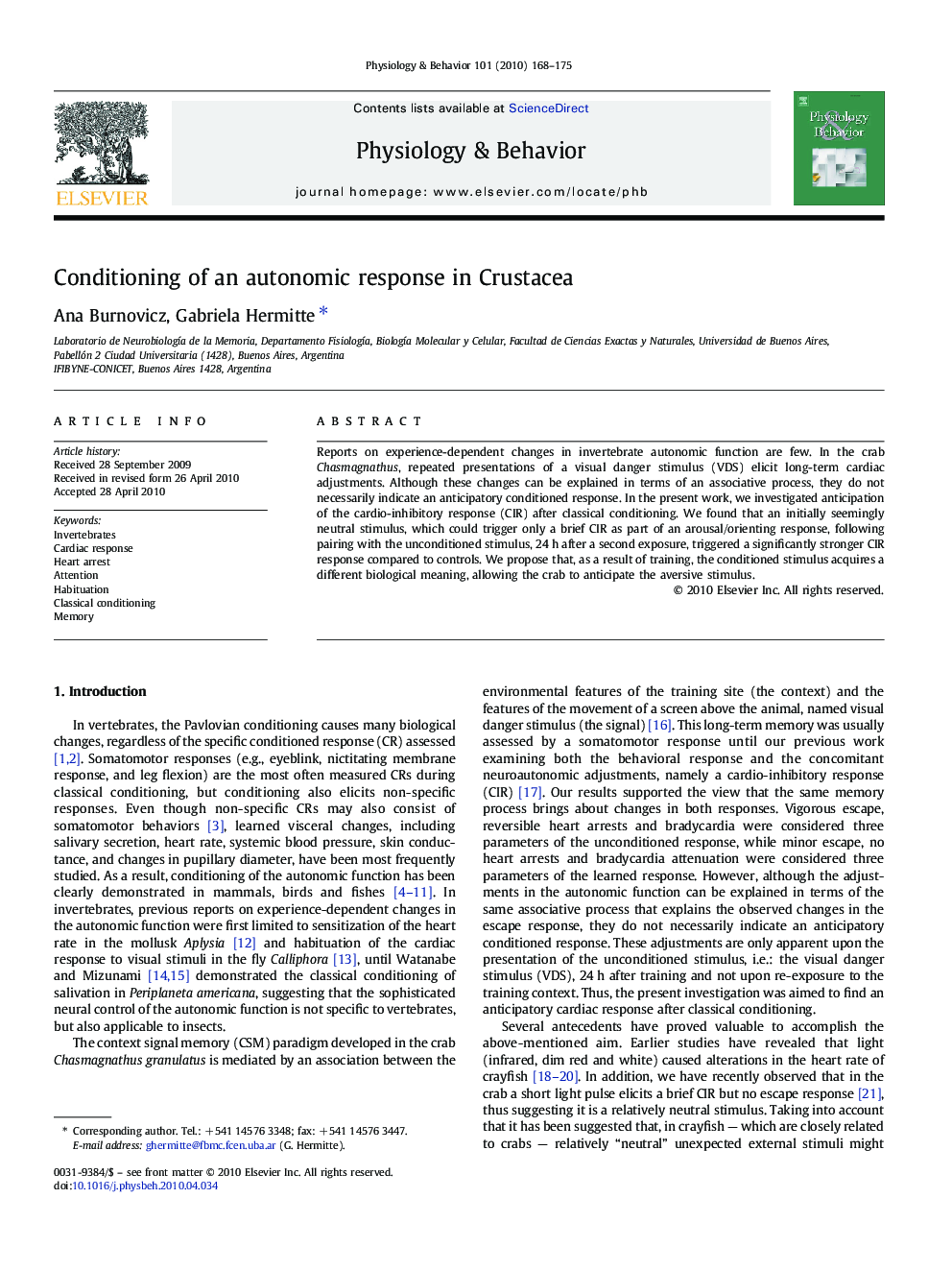| Article ID | Journal | Published Year | Pages | File Type |
|---|---|---|---|---|
| 2844710 | Physiology & Behavior | 2010 | 8 Pages |
Reports on experience-dependent changes in invertebrate autonomic function are few. In the crab Chasmagnathus, repeated presentations of a visual danger stimulus (VDS) elicit long-term cardiac adjustments. Although these changes can be explained in terms of an associative process, they do not necessarily indicate an anticipatory conditioned response. In the present work, we investigated anticipation of the cardio-inhibitory response (CIR) after classical conditioning. We found that an initially seemingly neutral stimulus, which could trigger only a brief CIR as part of an arousal/orienting response, following pairing with the unconditioned stimulus, 24 h after a second exposure, triggered a significantly stronger CIR response compared to controls. We propose that, as a result of training, the conditioned stimulus acquires a different biological meaning, allowing the crab to anticipate the aversive stimulus.
